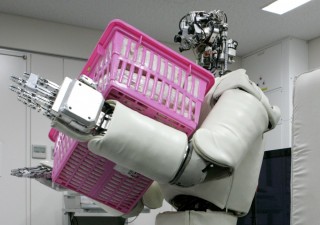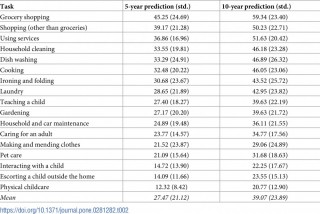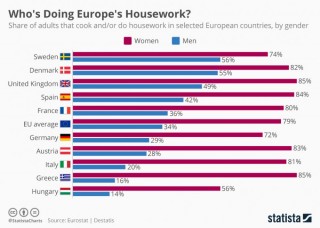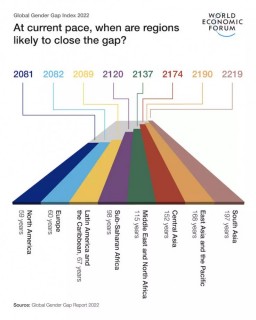Loading
Search
▼ Domestic Chores Could Be Done By Robots 40% Of The Time Within A Decade - New Study
- Category:Other
- Nearly 40% of the time spent on domestic chores could be automated within a decade, according to a new study.
- Housework is more easy to automate than tasks involving care, such as looking after children or the elderly.
- Automation of domestic tasks could have a social and economic impact by freeing up time - particularly women’s - for other things.
What’s your least favourite household chore - shopping? Cooking? Taking out the rubbish?
Now imagine you could hand over these mundane tasks to a robot. Bliss.
This tech-enabled domestic idyll is not as far off as we may think, according to new research, with advances in automation and AI meaning a significant proportion of housework could be handled by robots within the next decade.
Based on a list of 17 common domestic tasks, a panel of AI experts estimate that an average of 39% of the time spent per task could be automated within 10 years.
And within five years, over a quarter of time spent could be automated. In fact, domestic service robots - mainly robotic vacuum cleaners and mops - have already become the most widely sold robots globally.
Unsurprisingly, traditional housework tasks - cooking and cleaning, etc - are more easily automated than care tasks, like looking after children or the elderly.
The most easily automated task is likely to be grocery shopping, which could be 59% automated within a decade. The least easy to automate was seen to be physical childcare at 21%.
But, as the study authors point out, this growing automation of domestic work also puts a new slant on conversations around the future of work. Conversations related to the impact of automation on work are currently limited to paid work only.
Working-age adults spend similar amounts of time on this unpaid domestic work as they do on paid work. But household chores are also disproportionately carried out by women.
Therefore, automation of these tasks could lead to significant social and economic consequences. More time - particularly that of women - could be freed up for social, leisure and paid work.
This is particularly relevant given the World Economic Forum’s Global Gender Gap Report 2022 shows that, at our current rate of progress, it will be another 132 years before there is parity between men and women.
The heavy burden women bear as a result of unpaid care work was also laid bare during the pandemic, when productivity plummeted for many and/or they were forced out of the workforce as a result of domestic responsibilities.
- April 12, 2023
- Comment (0)
- Trackback(0)





